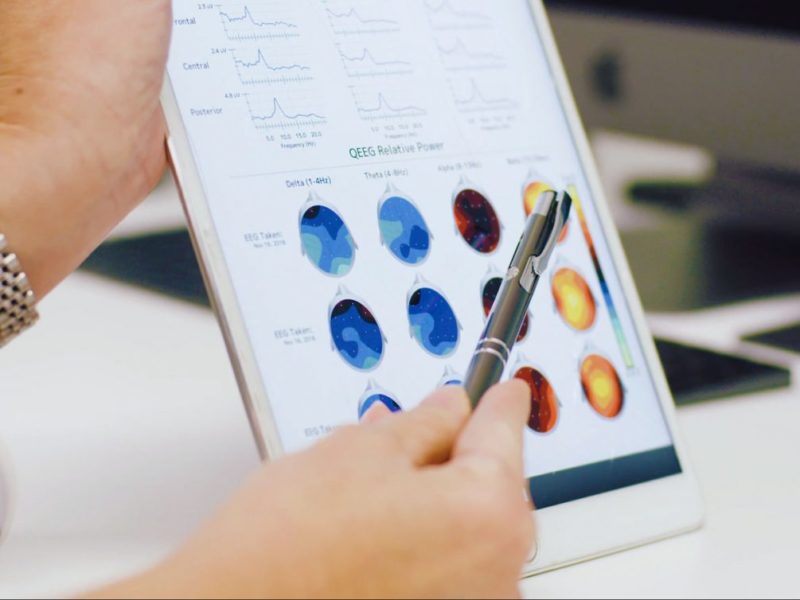 When you suffer from insomnia, your mental and physical health are both impacted. Everybody struggles with a lack of adequate sleep from time to time. This is normal, and your body should recover in a short period once you catch up on your sleep.
When you suffer from insomnia, your mental and physical health are both impacted. Everybody struggles with a lack of adequate sleep from time to time. This is normal, and your body should recover in a short period once you catch up on your sleep.
Sleep is one of the pillars of good health. It’s a basic need, just like breathing, eating, and drinking. Sleep helps your brain to work properly. It helps you to pay attention, learn, and make good decisions. It also indicates the kind of mood you will be in and your ability to cope with stress.
Chronic insomnia is different and can have long-term adverse effects on both your mental and physical health. According to the National Institute of Health (NIH), 70 million people in the U.S. suffer from this condition. Additionally, a survey by the National Sleep Foundation shows that 35% of the adults who took part rated their sleep quality as poor.
What is Chronic Insomnia?
Chronic insomnia occurs when sleep problems become a regular event for you. Symptoms can include:
- Having trouble falling asleep, even if you are tired
- Waking up several times during the night
- Waking up very early and not being able to go back to sleep
- Difficulty concentrating during the daytime hours because of exhaustion
- Having difficulty napping even when tired
Persistent and chronic sleep deprivation can have major health consequences. It’s important to understand the cause and effect in order to treat the condition with success. However, sometimes it’s a struggle to determine what is causing chronic insomnia.
The reason for this is that certain medical conditions can cause insomnia, but the opposite is also true. Chronic insomnia can also cause and contribute to some health conditions, some of which can be serious. Medical conditions such as sleep apnea can cause insomnia if left untreated. Other things that cause chronic insomnia are lifestyle and poor sleep hygiene.
Call our New Patient Coordinator at
214-972-0126
Or Fill in the form below, and we will contact you.
Conditions Treated by MeRT
Dr. Spencer Miller, a board-certified neurologist, offers a treatment protocol at his clinic in Dallas called MeRT, or Magnetic e-resonance therapy. MeRT is used to treat a variety of mental health and neurological conditions, including:
- Depression
- Anxiety
- Traumatic brain injury/post-concussive syndrome
- Post-traumatic stress disorder
- Autism
- Parkinson’s disease
- After-effects of stroke
- Dementia
Coincidently, the conditions above can also be a cause of sleep deprivation. However, insomnia can also exacerbate these types of conditions.
We have been using MeRT to treat hundreds of patients with the above conditions. Often, one of the first things our patients report is that they can sleep again. Click here to learn more about MeRT.
Per the National Institute of Health:
“Insomnia is often considered to be a disorder of hyperarousal, or increased somatic, cognitive, and cortical activation. Individuals with insomnia may experience physiologic hyperarousal in both the central and autonomic nervous system.
Sleep disruption is associated with increased activity of the sympathetic nervous system and hypothalamic-pituitary-adrenal axis, metabolic effects, changes in circadian rhythms, and proinflammatory responses.”
Deficiencies in sleep have been linked to chronic health problems including:
- Hypertension
- Cardiovascular disease
- Increased overall inflammation
- Type 2 Diabetes
- Lowered immune response
- Obesity
- Kidney disease
- ADHD
- Endocrine dysfunction
- Dementia/Alzheimer’s disease
Even people who experience short-term bouts of insomnia will notice cognitive and memory issues, feelings of increased stress, emotional distress, and mood disorders.
What is MeRT?

MeRT is a more sophisticated form of TMS. Typically, when a patient undergoes standard TMS treatment, treatment protocols are set in place for that particular condition; it’s more of a one-size-fits-all approach to neuromodulation.
With MeRT, we use the qEEG (quantitative electroencephalogram)/EKG to measure YOUR specific brain waves and patterns. This allows us to develop a treatment protocol that is customized for your unique brain. We’ve seen some incredible results from this technology.
Patients who experience mental health disorders or neurological conditions will often show dysregulation in their brain signals on an EEG. The same holds true for people who are experiencing long-term, chronic insomnia.
TMS has been studied for many disorders and has advanced into the treatment of sleep disorders. In addition to helping with co-existing conditions that contribute to insomnia, it can also help those with primary insomnia.
Starting as a New Patient
When you start as a new patient at the Brain Treatment Center Dallas, you will initially need two appointments, approximately two days apart. Both appointments will last about an hour. These appointments will determine if Dr. Miller feels you can truly benefit from the MeRT [Magnetic e-Resonance Therapy] Program and, if so, develop a tailored treatment plan based on your test results. Once you have done the testing and consultation, you are not obliged to begin treatment. This is something that you will determine once you have seen your test results and consulted with Dr. Miller.
First Appointment
At the first appointment, we will go over your reasons for seeking help, your medical history, your health goals, and all of your symptoms. You will then begin initial testing, which will involve an EEG and an EKG. These are both completely painless and easy and are done right in our office. We then send your information and test results over to our scientific and clinical teams, who will carefully analyze the results and determine the current state and functioning of the brain together with Dr. Miller.
We use a patented, scientific approach with the neurophysiological data gathered through testing to develop a highly customized treatment plan aimed at encouraging healthy brain communication and function.
Second Appointment
At your second appointment, you will meet with Dr. Miller for a consultation. During this consultation, he will discuss your test results and whether he and our scientific team feel that results may be achieved for you through our treatment protocol. This appointment will also serve to answer any additional questions you may have. After that second appointment, Dr. Miller will lay out your individualized treatment plan and the protocols to be followed for the best results. At that point, you may discuss fees, length of treatment, and schedules and then decide whether to go forward and schedule your treatment.
Contact Our New Patient Coordinator With Your Questions! We Would Love to Help!
We understand what you are going through. Our New Patient Coordinator is here to help. Give us a call, and she’ll answer all your questions. She can also explain our protocols and fees and how MeRT might be able to benefit you. There is hope!
Call our New Patient Coordinator at
214-972-0126
Or Fill in the form below and we will contact you.